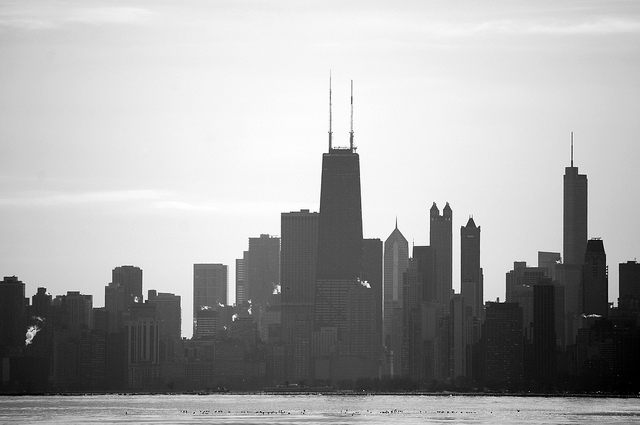Chicago-based New York Times Book Critic Doesn't Get Chicago
By Chuck Sudo in Arts & Entertainment on Apr 22, 2013 8:40PM
We’re used to The New York Times not quite understanding Chicago, whether the articles focus on being a single traveler in the Windy City, or discovering the depths of our restaurant scene, or recognizing the City by the Lake has more to offer than just 100 years of baseball futility on the North Side and fat jokes.
Add Rachel Shteir’s reviews of three Chicago-themed books in Sunday’s NYT Sunday Book Review to the list, with the special distinction of being the first one showing a cluelessness for Chicago, written by an author who has called the city home for 13 years, which — more than the poor writing and editing — hit the collective funny bones of the “how dare you speak ill of Chicago” critics. Like a chimpanzee at a zoo, Shteir tosses a lot of feces around, hoping to hit some target. After listing a litany of “apocalypses” befalling the city including its murder rate, the parking meter fiasco, the Chicago Tribune bankruptcy and the Cubs endless dance with futility, Shteir gets to the meat of her argument. Turns out she’s put off by our excessive civic pride in spite of all the problems.
And yet even as the catastrophes pile up, Chicago never ceases to boast about itself. The Magnificent Mile! Fabulous architecture! The MacArthur Foundation! According to The Tribune, Chicago is “America’s hottest theater city”; the mayor’s office touts new taxi ordinances as “huge improvements.” The mayor likes brags that could be read as indictments too, announcing the success of sting operations busting a variety of thugs and grifters.The swagger has bugged me since I moved here from New York 13 years ago.
The Reader’s Michael Miner, in a takedown of Shteir’s essay, essentially accuses her of being the “latter-day A.J. Liebling” she asked readers not to accuse her of being.
She is, like the cub reporter who wishes to God he'd gone drinking with Ben Hecht, yearning for a golden era she was born too late for. Shteir teaches theater at DePaul University, yet she doesn't identify herself with, or even seem to notice, anything interesting going on in Chicago theater since those same mid-50s, which by coincidence is when the Compass Players were launched in Hyde Park. And that's odd, as the one thing Shteir faults Dyja for is his not fully appreciating the merits of her alma mater, the University of Chicago. Whether this lapse of his is apocalyptic or merely tragic and catastrophic she doesn't say.
Claire Zulkey, who wrote on her WBEZ blog that Shteir’s essay should have been titled “I Hate It Here,” took her to task for not recognizing the depth of inventive women writers working in Chicago. Criticism of Shteir’s essay repeated a recurring theme — if she hates living in Chicago so much, why does she stay.
Yet some of her issues with the city get lost in translation. Daniel X. O’Neil noted Shteir was spot-on about Chicago’s political corruption and how many of us come to view it as a part of being the City That Works; the rampant civic boosterism (which, in fairness, some of the criticism to her piece is rooted); and the distortion of hard-boiled tough guys like Nelson Algren as part of the city’s fabric.
Completely lost in the criticism was Shteir’s takes on the three books: The Third Coast: When Chicago Built the American Dream, by Thomas Dyja; Golden: How Rod Blagojevich Talked Himself Out of the Governor's Office and Into Prison, by Jeff Coen and John Chase; and You Were Never in Chicago by Neil Steinberg. None of the books fare particularly well under Shteir’s critical eye, although Dyja’s comes closest, Miner surmises, because he moved away from Chicago.
Shteir’s older writings have also been trotted out as other examples for her Second City cluelessness. Gapers Block’s David Schalliol referenced a 2010 article Shteir wrote for Tablet in which she said with authority Rahm Emanuel would never be elected mayor.
Why?
He’s “too Jewish.”
”Emanuel’s brash public persona, which in New York and Washington is synonymous with the allegedly Jewish qualities of ambition, striving, and aggression—all desirable qualities, or at least ones that get you talked about on Sunday morning news shows—does not play in the power corridors here.”
Let’s hope she didn’t have money riding on that prediction.
